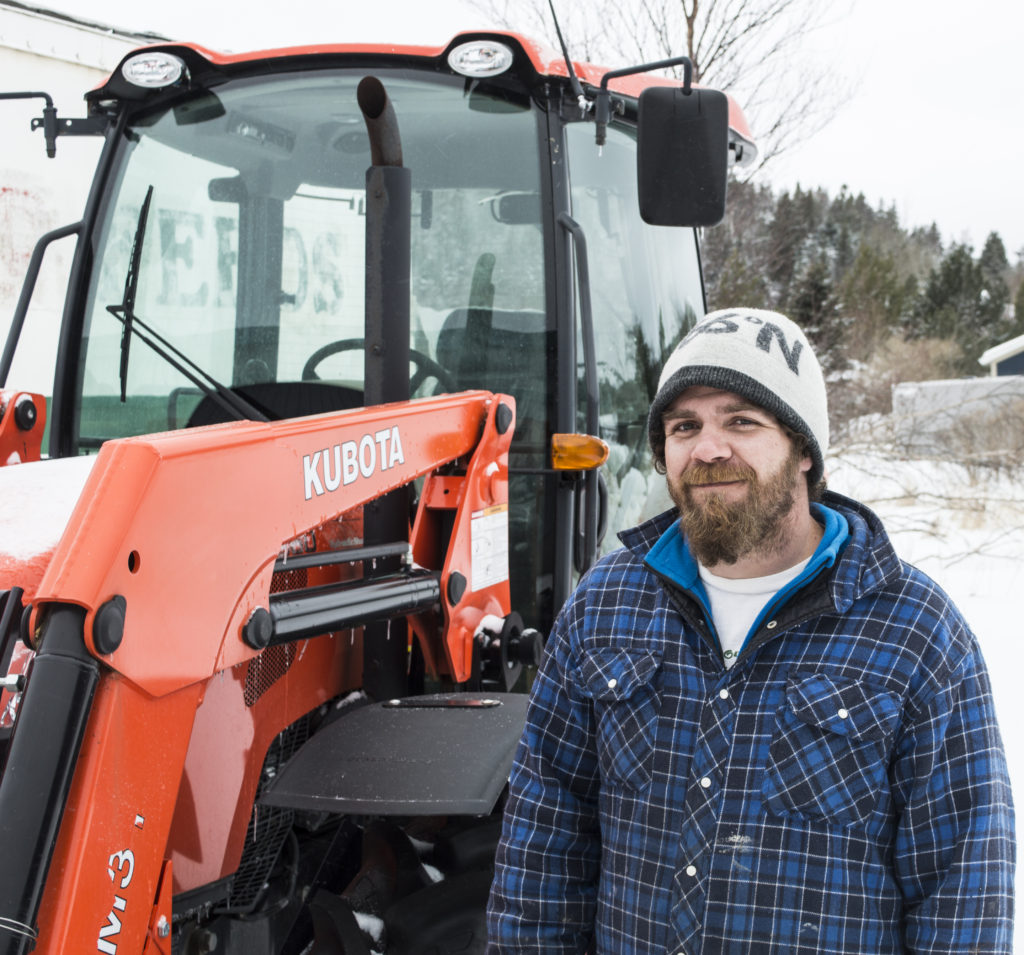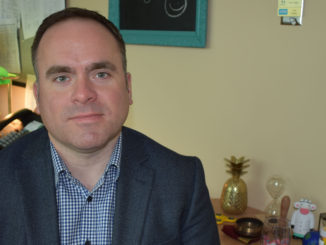Now that the provincial government has designated 64,000 hectares for farming, one Avalon farmer is optimistic about new Crown land opportunities.
Anthony Sparrow
Kicker
According to Darryl Legge, you have to walk away from what you’ve always known in order to realize what you want to do for a living.
Legge is a third generation chicken farmer. Combined, his poultry operations in Harbour Main and Holyrood raise over 900,000 birds a year.
While Legge is very passionate about agriculture, there was a time when he felt differently about his place in the family business.
“Ironically, when I was like 18, I remember my Dad said to me one time, ‘Well, this will all be yours,’” Legge said. “And I said ‘No way, I’m getting out of here. I’m leaving.’”

Legge attended university and earned a degree in political science. At age 29, however, he took over his father’s farm. He says the independent lifestyle of a self-employed livestock producer is what finally brought him back to the fold.
Newfoundland and Labrador farmers like Legge received a significant boost this week as the government announced that 64,000 hectares of Crown land would be set aside for agriculture.
Steve Crocker is the minister of Fisheries and Land Resources. While only 0.9 per cent of the province’s land is suitable for farming, he says the new areas approved for development are about three times the size of the 20,000 hectares that’s currently being farmed.
Crocker says this initiative will allow established farmers to grow their operations while creating more opportunities for newcomers to enter the industry.
“Most of the regulatory hurdles have already been gone through by government,” Crocker said. “This land should be able to be turned over to farming in a very timely fashion.”
Legge says he supports the plan to make local farms more productive. He also says he expects it will diversify the economy and generate a lot of spinoff in rural areas.
“I think it’s fantastic,” Legge said. “I think if it’s done properly, it’s going to eliminate a lot of red tape, a lot of barriers for anyone new or young to get into the industry. Basically, you can’t do nothing as a farmer if you don’t have a land base.”
Legge says the extra land could lead to more grains being grown on the island; that would reduce one of his biggest expenses – imported feed.
Legge wants to apply for some Crown land so he can start growing hay, winter wheat and other forages. He says he could sell the crops to local dairy producers and use the leftover straw as bedding for his chickens, lowering his costs and improving his efficiency.
With or without more land, Legge’s faith in the future of Newfoundland and Labrador’s farming sector comes across loud and clear.
“This is the frontier of agriculture in Canada,” he said. “We are untouched, really, when you compare us to the rest of the country. So, we have the potential there for this industry to grow in leaps and bounds.”



